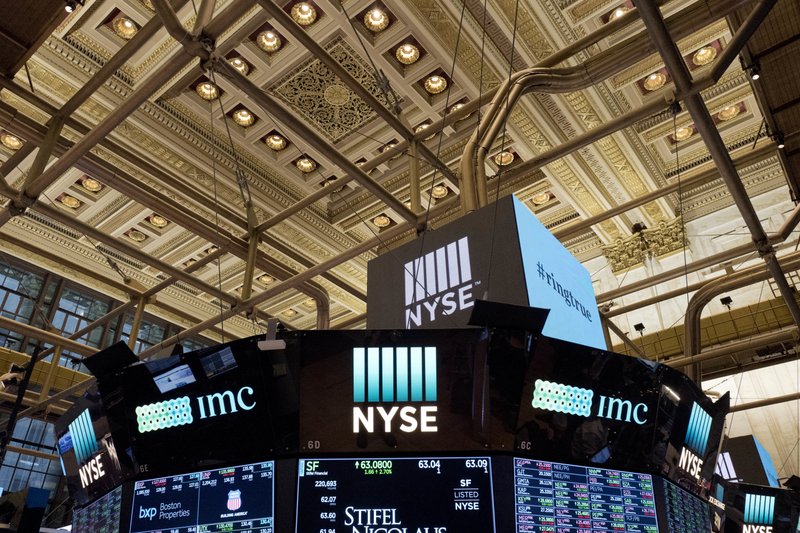NEW YORK -- Oil prices and energy companies rallied Friday after OPEC said it will produce more oil, but not as much as investors feared. While trade tensions remained in the headlines, U.S. stocks finished slightly higher at the end of a bumpy week.
U.S. crude-oil futures jumped 4.6 percent after the Organization of the Petroleum Exporting Countries nations agreed to produce about 1 million additional barrels of oil per day. Reports have said for weeks that production was likely to rise, but analysts said investors appear to think the boost will be smaller than OPEC says it will. So oil prices rallied even though they usually go down when production rises.
"People were pricing crude in the last couple of weeks [expecting] a bigger increase by OPEC than what they agreed to," said Jim Paulsen, chief investment strategist for the Leuthold Group.
The European Union followed through on its promise to put import taxes on $3.2 billion in U.S. goods, including bourbon, peanut butter and orange juice, in response to U.S. tariffs on steel and aluminum. Automakers were jolted after President Donald Trump threatened to put a 20 percent tax on cars imported from Europe, although none of them took big losses.
The S&P 500 index rose as much as 14 points but ended with a gain of just 5.12 points, or 0.2 percent, to 2,754.88. The Dow Jones industrial average added 119.19 points, or 0.5 percent, to 24,580.89 to break an eight-day losing streak. The Dow lost 2 percent this week, with Boeing off 5.3 percent and Caterpillar down 6.7 percent. Those were both companies' biggest losses in three months. Makers of chemicals and other basic materials like 3M also lost ground this week, and technology companies slipped.
The Nasdaq composite fell 20.14 points, or 0.3 percent, to 7,692.82. The Russell 2000 index of smaller-company stocks sank 3.37 points, or 0.2 percent, to 1,685.58.
U.S. crude climbed 4.6 percent to $68.58 a barrel in New York. That was its biggest one-day gain since November 2016, when OPEC and a group of other countries including Russia agreed to cut production by 1.8 million barrels a day. Prices have been rising since then, and U.S. crude hit a three-year high of about $72 a barrel in May.
Brent crude, the standard for international oil prices, rose 3.4 percent to $75.55 a barrel in London.
Exxon Mobil picked up 2.1 percent to $81.38, and Marathon Oil surged 7.8 percent to $21.48.
In Germany, shares of BMW lost 1.1 percent and Daimler sank 0.3 percent. Daimler fell more than 4 percent Thursday after it said Chinese tariffs on U.S. cars would contribute to a decline in its earnings this year. Ford and Toyota also dipped while Peugeot and General Motors rose.
"If you're in the direct line of fire from a tariff, it's hugely important," said Paulsen. Still, he said investors are very skeptical that a damaging trade war will break out. "The trade war has heated up over the last couple of months and yet stocks are up over that period of time," he said. That was also the case Friday.
Open-source software-maker Red Hat dropped 12.4 percent to $142.14 after it cut its sales forecasts because of the strengthening dollar. Other technology companies also declined. The industry has been leading the market for more than a year, but it makes more of its sales outside the U.S. than any other major S&P 500 sector. Micron Technology fell 3.9 percent to $57.10, and Nvidia lost 2.4 percent to $250.95.
In other commodity trading, wholesale gasoline jumped 2.9 percent to $2.07 a gallon. Heating oil added 2.7 percent to $2.13 a gallon. Natural gas skidded 1 percent to $2.95 per 1,000 cubic feet.
Business on 06/23/2018

